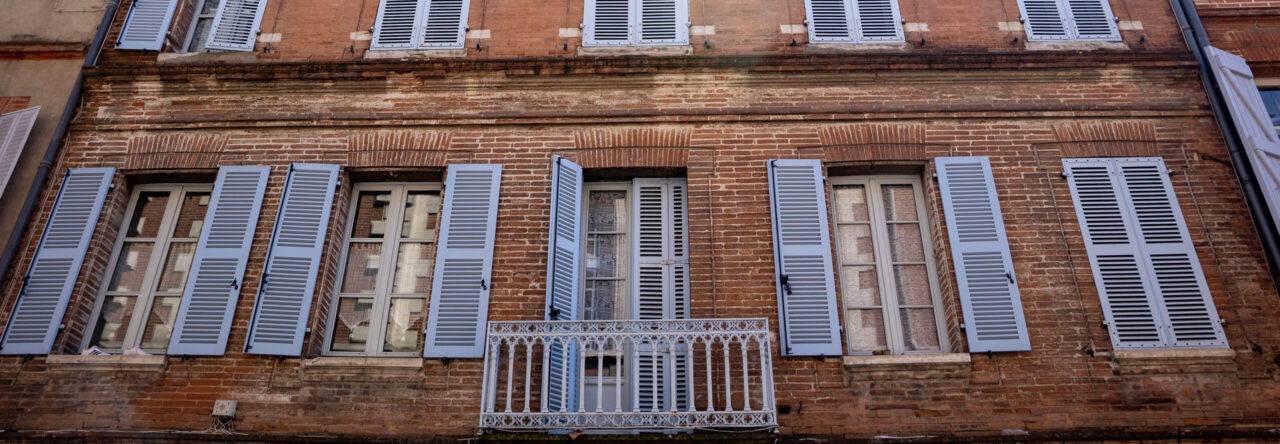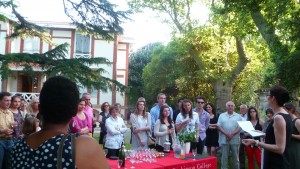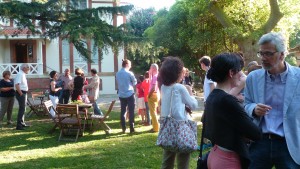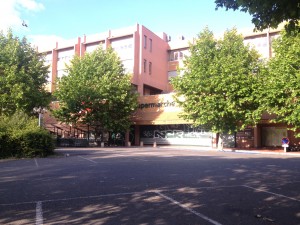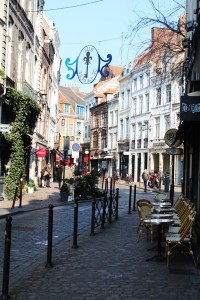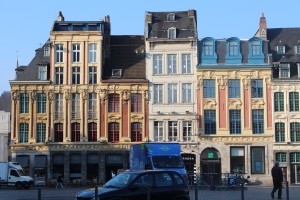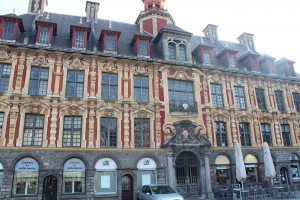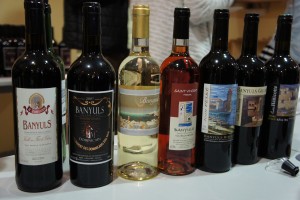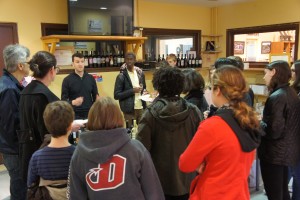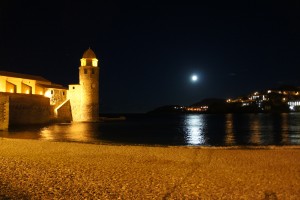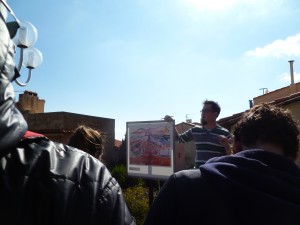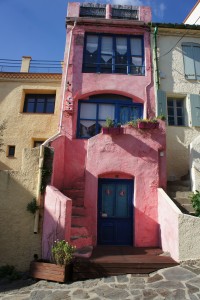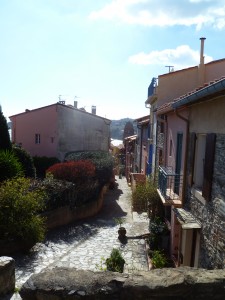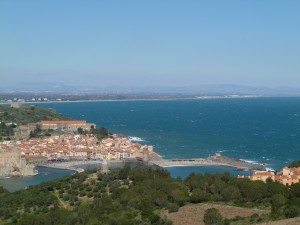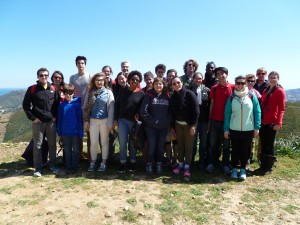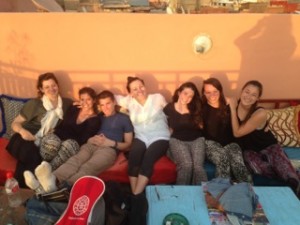
A photo from the finale of The Voice : la plus belle voix
Throughout my semester in France I have done and tried many things in order to better understand the French way of life and mentality. Normally, in order to do this one thinks of cultural discoveries that are found away from the house like visiting museums and churches and walking among the habitants of the city. However, there is a place at home that one can use to discover cultural differences – the world of television. Here are my thoughts on the subject after having watched it a few nights each week with my hosts.
Like in the United States there is a variety of programming and channels to watch. During my time in Toulouse I have watched shows like “Nos Chers Voisins” (Our Dear Neighbors), “C’est Cantaloup” (It’s Cantaloupe), the news, and TV game shows like “The Voice” or “QI” (IQ). I find that the programming schedule is set up in an interesting way. For example “Nos Chers Voisins” and “C’est Cantaloup” are very short shows that air every night for less than a half hour time slot. Other emissions like The Voice and various series air regularly one night of the week and only once a week, the norm in the US. Finally there are some shows like “QI” that air on Friday, but not every week. Each week another show of a similar type will take the place of the show aired the week before, and they go through a cycle.
The show that I love the most is “The Voice : la plus belle voix” (The Voice : The most beautiful voice). I know that this show is essentially identical to the American version, but with an added French flair. Season four of The Voice ended last Saturday (Go Lilian and team Zazie!), but up until now I watched it each week as a way to discover French songs and artists. The judges also use words that I don’t know as they are part of a specific music jargon, so I listen and learn while watching. From what I understand, American television series like this one are rather popular in France. I’ve asked French students what they like to watch and I was repeatedly given responses like “Desperate Housewives” and “The Simpsons”. For me, this is bizarre because in the US we watch French TV shows rarely, if at all, but here it is the inverse. Even the music that the contestants sing on The Voice is a mixture of English and French songs. It is easy to see these American and anglophone influences in the francophone world.
I find that the most shocking show, but also the most French, is “C’est Cantaloup”. The idea of this show is to mock politicians by dubbing video clips of the politicians with various jokes. It’s all a part of French satire. Each time I watch, I try to understand the references, but it’s somewhat difficult to keep up with everything that happens in French politics so the references normally end up passing over my head. However this show, even though relatively short, is one of the most impolite that I have ever seen. In the US we have “Saturday Night Live”, and while the two are similar, they also have their differences. The main difference is that “C’est Cantaloup” will mock only politicians and then it’s normally Hollande or Sarkozy.
France also has commercials like the US during and between shows. They are not as frequent as they are in the US, but they last for a longer time. Subjects for commercials are similar, the most frequent being food related commercials (McDonald’s, Carrefour, etc.), but unlike in the US, I almost never see commercials for medicine. Movie trailers are also rather frequent in the US, but not in France. The subjects may be slightly different between the two countries, but the methods to grab the attention of the viewer are almost the same. The French use humor and music jingles like Americans and it works rather well. One of my favorite commercials that I probably will never forget is for Sosh where everyone tries to say “Je suis passé chez Sosh” as a tongue twister. After I tried (and failed) to say it, it becomes unforgettable, effective, if somewhat annoying. I know that it is important to not stay at home all the time, but even at home there are cultural discoveries waiting to be found, even if they are behind a screen.
-Gabriel Chong-Ling
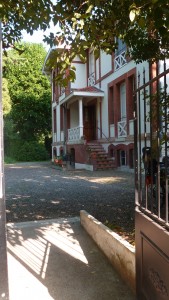 Ça y est, une autre année académique à Dickinson en France s’est achevée et nos étudiants sont partis pour profiter de l’été et reprendre leurs études aux Etats-Unis à la rentrée. L’équipe de Dickinson en France remercie tous les participants pour leur contribution aux activités de son programme tout au long de l’année. Nous vous souhaitons un très bel été, une très bonne continuation dans vos études et de la chance dans tous vos futurs projets. Nous espérons que vous rentrerez avec les valises pleines de nouvelles expériences, que vous y emporterez aussi le souvenir de nouveaux amis et bien sûr, un peu plus de français !
Ça y est, une autre année académique à Dickinson en France s’est achevée et nos étudiants sont partis pour profiter de l’été et reprendre leurs études aux Etats-Unis à la rentrée. L’équipe de Dickinson en France remercie tous les participants pour leur contribution aux activités de son programme tout au long de l’année. Nous vous souhaitons un très bel été, une très bonne continuation dans vos études et de la chance dans tous vos futurs projets. Nous espérons que vous rentrerez avec les valises pleines de nouvelles expériences, que vous y emporterez aussi le souvenir de nouveaux amis et bien sûr, un peu plus de français !